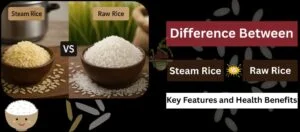Rice farming is a vital part of agriculture worldwide, supporting many livelihoods and providing food for billions. Despite the peaceful image of green rice fields, the reality for rice farmers is challenging. It is a profession filled with difficulties, yet it brings deep satisfaction and connection to the land.
The Demands of Rice Farming
Rice farming involves more than just planting seeds and waiting for the harvest. It is a labor-intensive task that requires careful attention to detail and unwavering dedication. From preparing the fields to nurturing the crop and dealing with pests and diseases, each stage of rice cultivation presents its own challenges.
Preparation and Planting
Preparation starts well before planting the first seed. Farmers must plan their fields carefully, ensuring proper water management—a crucial aspect of rice cultivation. Building complex irrigation systems is essential in areas with limited water, adding to the workload.
Once the fields are ready, planting begins—a strenuous task involving hours of bending under the sun, transplanting young seedlings into the flooded fields. The repetitive nature of this work can be physically taxing, leading to fatigue and muscle strain.
Challenges During Growth
As the rice plants grow, challenges arise. Pests and diseases pose a threat to the crops, requiring constant monitoring and a mix of traditional knowledge and modern farming practices to protect the fields.
Weather also significantly impacts the success of a rice crop. Farmers must adapt to nature’s changes while striving to safeguard their livelihoods.
Financial Risks
Apart from physical challenges, rice farming involves financial risks. Fluctuating market prices and unpredictable yields can disrupt a farmer’s income, making them vulnerable to economic instability
The Rewards of the Harvest
Despite the challenges, rice farmers find great satisfaction in the act of cultivation. There is a strong connection to the land—a sense of being part of a timeless tradition passed down through generations.
For many farmers, the harvest season is a time of joy—a result of months of hard work and perseverance. The benefits of rice farming go beyond the tangible yield, creating a deep bond with the natural world.
In Summary
Being a rice farmer is undoubtedly tough—a continuous struggle against the elements, pests, market uncertainties. Yet, it is a fulfilling calling that brings purpose and a sense of belonging that surpasses the difficulties.
With climate change and economic shifts, the future of rice farming is uncertain. However, as long as there are farmers willing to work the fields, nurture the soil, and bring forth life from the earth, this tradition will endure. Rice farming is not just a job; it is a way of life—a testament to the enduring strength of the human spirit.


